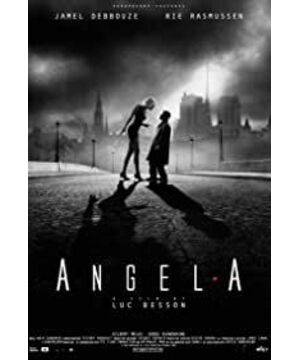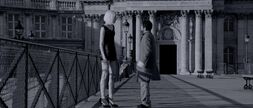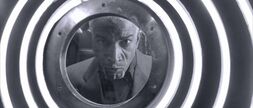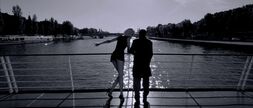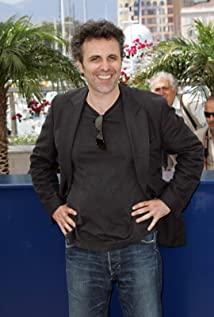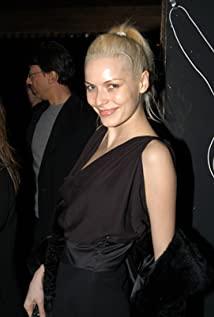It's a simple story where an angel falls into the mortal world. Helped someone who was "not too tall, not too strong, not too rich" and was cornered. Romantic French people like to tell these beautiful stories, but here, unlike the angel in Emily's life, Luc Besson let the angel who really has a pair of white shining wings fall into the world, she is in the coffee shop It shows the strange function of angels, and says to an ordinary person who cannot be ordinary in life, I am an angel, and I will help you. At that moment, the mortal Andrea, who was sitting opposite the angel, burst into tears. For an ordinary and frustrated person, the blessing he once dreamed happened quietly in front of his eyes...
This is a story that does not seem romantic, romantic Paris, the beautiful Seine River in Luc Besson's In the lens, it becomes a world of black and white. Tarkovsky once said, "Although the world is in color, black and white images are closer to the psychological and natural artistic reality." Therefore, Luc Besson used the most simple way to express this beautiful and reaching film. Under this simple lens, Paris has returned to the Paris in people's hearts. It is the Paris we once tasted in books, with simple streets, quiet cafes, and Parisian artists walking on both sides of the Seine River. Even those sluggish dance halls and clubs have become simple in black and white. "Angel Emily" is full of warm France, and everything exudes warmth and romance. Here, everything returns to simplicity and simplicity. The white feathers shine with the brilliance of the sun in the black and white world. It's still romantic.
For those who like Luc Besson, this movie will be a disappointment. Luc Besson's greatest contribution to French cinema is to bring French cinema to the world. His previous films are borderless. However, no matter the story or the shots, "Angle A" is too ordinary and is the most French movie. Luc Besson has been silent for six years to bring the film, so simple. And the protagonist of the film is the most ordinary person for the first time. Not a killer, not a hero who saves the world, just like the rescue of an angel, Luc set his sights on ordinary people. In the movie, he asked ordinary Andre to say "I love you" to the mirror, and let the viewers watch the movie. , fell in love with the angel, and then, like Andrea, fell in love with himself. To be precise, this film was made for the French, and I heard that France’s social credibility is low today. Luc Besson just borrowed this angel, with the help of such a film, to make people (especially the French) love themselves and love life again. For that alone it is still extraordinary.
View more about Angel-A reviews


